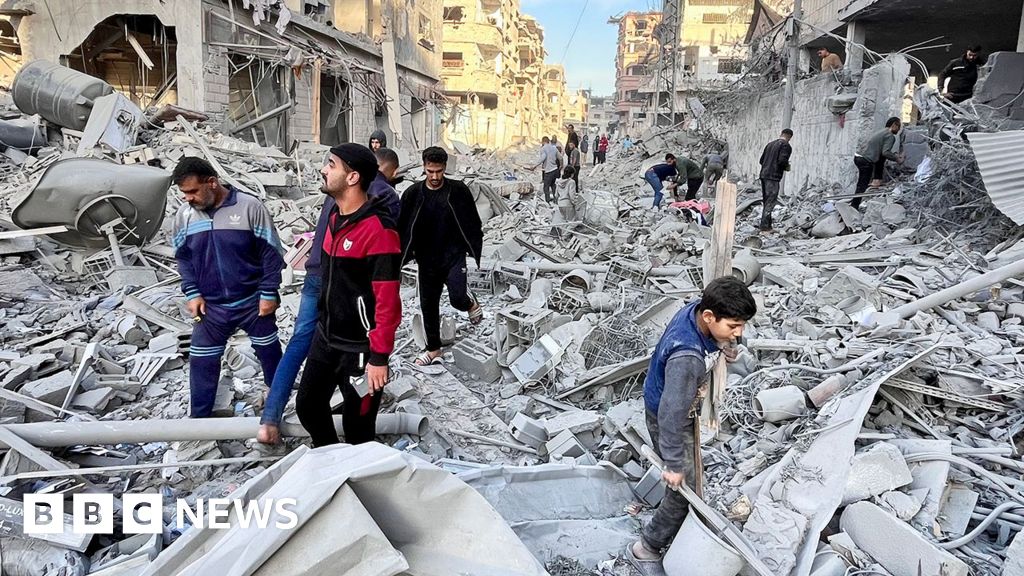UN agencies had planned 31 missions to the besieged areas of North Gaza governorate between 1 and 18 November, according to the Office for the Co-ordination of Humanitarian Affairs (OCHA).
Twenty-seven were rejected by Israeli authorities and the other four were severely impeded, meaning they were prevented from accomplishing all the work they set out to do.
“This is happening when the IPC Famine Review Committee said just 11 days ago that parts of northern Gaza face an imminent risk of famine – and that immediate action is needed in days, not weeks,” UN spokesperson Stéphane Dujarric told reporters in New York.
“The result is that bakeries and kitchens in North Gaza governorate have shut down, nutrition support [for children and pregnant and breastfeeding women] has been suspended, and the refuelling of water and sanitation facilities has been completely blocked.”
Mr Dujarric said access to the three barely functional hospitals there also remained severely restricted, amid what he called “desperate shortages” of medical supplies and fuel.
On Sunday, a World Health Organisation-led mission to Kamal Adwan hospital in Beit Lahia was able to deliver 10,000 litres of fuel and transfer 17 patients, three unaccompanied children and 22 caregivers to al-Shifa hospital in Gaza City.
However, Mr Dujarric said the aid workers were forced to offload all the food supplies and some of the medical supplies they were transporting at an Israeli military checkpoint before reaching the hospital.
The director of Kamal Adwan, Dr Hussam Abu Safiya, warned on Wednesday that the situation there was becoming “even more catastrophic”.
Gaza’s Hamas-run health ministry cited him as saying that the hospital had 85 patients receiving “the minimum level of healthcare” and that it needed children’s food and infant formula to treat an increasing number of malnutrition cases.
Since Tuesday, 17 children had arrived at the emergency room showing signs of malnutrition and an elderly man had died due to severe dehydration, he added.
There was no immediate comment from the Israel Defense Forces (IDF).
But data from the Israeli military body responsible for humanitarian affairs in Gaza, Cogat, said 472 aid lorries had entered northern Gaza via the Erez West crossing as of 17 November, without specifying whether any of that aid was allowed into the besieged areas.
Cogat also said it was continuing to work with international partners to “facilitate broad humanitarian responses for the civilian population in Gaza”.

